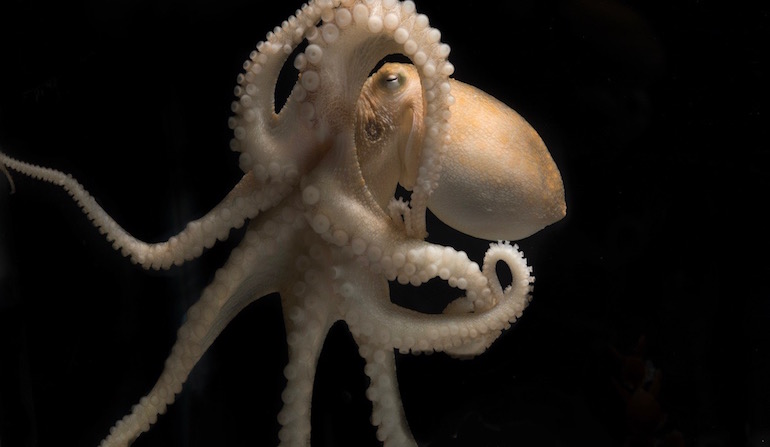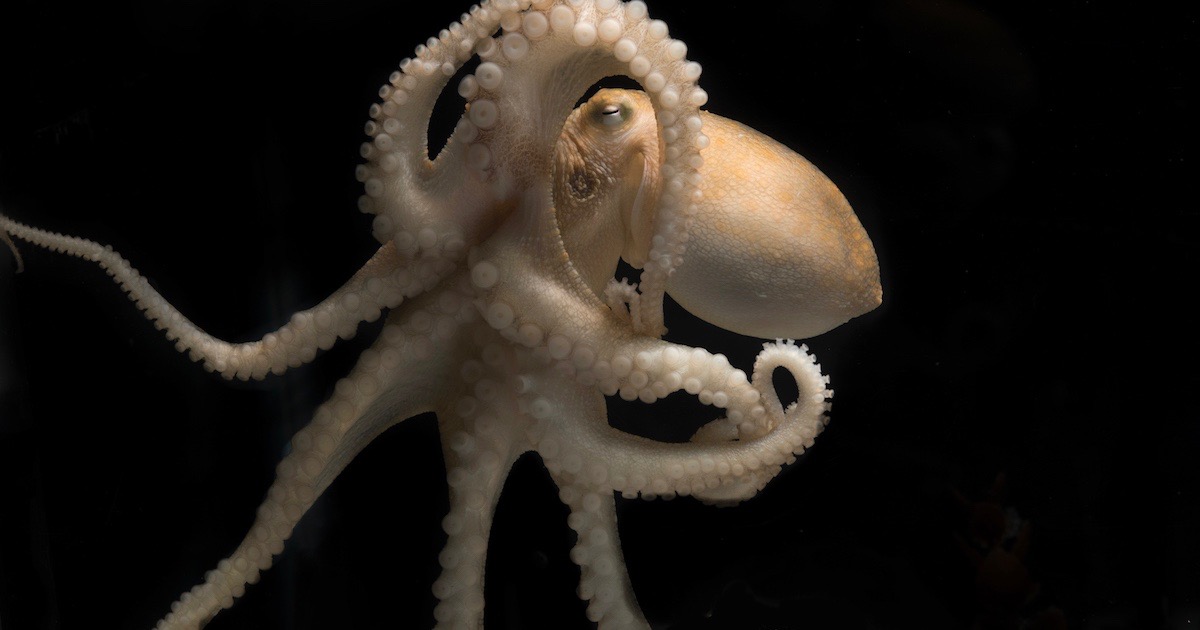 Evolution
Evolution
 Intelligent Design
Intelligent Design
Octopus Genetic Editing — Animals Defy Their Own Neo-Darwinism

 Photo: California two-spot octopus, by Tom Kleindinst via Marine Biological Laboratory.
Photo: California two-spot octopus, by Tom Kleindinst via Marine Biological Laboratory.Some stunning upsets in conventional thinking about evolution have hit the news in rapid succession, threatening Darwin’s famous tree icon.
Under the rules of neo-Darwinism, mutations must be random, providing fodder for the blind processes of natural selection. But here’s a case where animals defy their own neo-Darwinism. Luke Dunning writes at The Conversation:
Are octopuses so clever because they ignore their genetic programming? Research has shown that octopuses and other cephalopods edit the messages sent from their DNA instead of following them almost exactly like most living things usually do.
Previously, scientists thought this process of molecular Chinese whispers was largely insignificant in animal evolution. But a new study published in the journal Cell shows this is certainly not true for these tentacled ocean dwellers.
It suggests that genetic editing may directly contribute to cephalopods’ remarkable intelligence, which enables them to solve complicated puzzles and visually communicate by changing their skin colour, making them the smartest of all invertebrates. However, the ability to alter genetic messages may come at a price, potentially reducing other more common forms of adaptive evolution. [Emphasis added.]
Let’s translate the evo-speak into plain English. Neo-Darwinism did not make cephalopods what they are. These highly intelligent and well-adapted animals edited their own genes, so what possible need do they have for other forms of adaptive evolution — presumably the blind, random, unguided kind? What does editing imply?
News from the University of Chicago’s Marine Biological Laboratory implies that cephalopods were wise to choose the RNA editing bargain. “Mutation is usually thought of as the currency of natural selection, and these animals are suppressing that to maintain recoding flexibility at the RNA level,” says biologist Joshua Rosenthal. The lab “identified tens of thousands of evolutionarily conserved RNA recoding sites in this class of cephalopods, called coleoid.” Evolutionarily conserved is a euphemism for stability — for non-evolution — over long periods of time. Those squid are smart, all right: they seem to be able to prevent Darwinian evolution!
So far, news sources such as New Scientist are just calling this “a special kind of evolution” based on RNA editing instead of DNA mutations. They’re restricting the phenomenon to squid, octopuses and cuttlefish. But usually when a new process is discovered in one group, scientists — now alerted to it — start finding it in other groups, too.
The implications for Darwin’s tree of life are clear. If animals are able to “defy genetics’ ‘central dogma’” (Phys.org) and take evolution into their own hands, no wonder the tree managers are scrambling.
Check out this talking point: “Cephalopods probably chose to take this RNA bargain over genome evolution, and maybe vertebrates made the other choice — they preferred genome evolution over editing.” They chose? That sounds like intelligent design by the spirits of cephalopods, playing their own evolutionary strategy against the rules of the game established by Darwin. A better model would be pre-programmed software for stability in a dynamic environment.
Photo: California two-spot octopus, by Tom Kleindinst via Marine Biological Laboratory.
